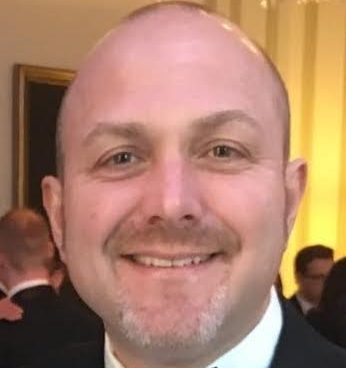Erik Fahlgren, W.W. Norton
At the time of this interview, Erik Fahlgren was the vice president and chemistry and astronomy editor in the college division of W.W. Norton.

What is a typical day like for you at Norton?
As an editor, I probably don’t do as much editing as someone might expect. In other businesses, I might be called a brand manager. My job is to find authors and understand what the market wants in a textbook and the things that go with a textbook and then find authors to create that material. I do some editing, but really I work on a much bigger picture with the authors to make sure that they’re doing the things that people who teach the courses they’re writing books for want. In a day, I might be talking to my authors, talking to the developmental editors that are working on the projects, reading reviews.
How did you get into college textbook editing?
One of the things that’s different about college textbook publishing is that editors almost always come through sales. I started my career as a college sales rep. I called on college campuses, talked to professors about the courses they teach and then tried to get them to “adopt” my textbooks. From there I went into marketing and then editorial.
Why science textbooks, though?
I kind of fell into it. As a student, I did not like science. When I got into sales and I started talking to scientists about how they teach and the kinds of struggles they had and what motivated them, I found them to be really interesting. I was pretty good at talking to them and getting them to use my books. That caught the eye of companies I worked for that maybe I was a good fit for science. I’ve been in it long enough now that I tell people, “I know enough science to be dangerous.”
So editing science textbooks was never your plan as an English major?
It was not what I intended to do. I’m not sure what I intended to do. I think at one point I thought maybe I would be a writer, and then at another point maybe I would be an English teacher. I got to meet some people who were publishing sales reps. I thought what they did sounded pretty cool. That was the job I wanted, and I got that job. Then, as I worked in that job, people mentioned that I seemed to give feedback to the office about things we should probably do to our books that would make them a better fit for my customers. I was promoted through marketing and into editorial. I did not have a grand plan, so that’s how that worked.
How did you deal with the learning curve of editing a subject that you didn’t really like and weren’t familiar with?
By the time I got into editorial, I did like the subject. I think that science education is extremely important. I’m not going to say that I understand it all, but it’s right at that place where I’m okay. I’m also not afraid to say when I don’t know. A lot of what I do is trust my authors. I think that, as an editor, it’s important to know when to trust them and when to push them and get them to do something they didn’t think they wanted to do or hadn’t thought about doing.
Science textbooks can be expensive. Why?
There is a lot of money that goes into what we do. All of the art that is created, we have to hire a studio to work with the author and developmental editor to develop the art. There is a long revision process. We hire different professors and pay them to read chapters and give feedback. The author may write the manuscript in Word, but that has to be put into InDesign, and that’s what makes the pages look the way they do. That, again, is costly. Then there are photo permissions. The other things that are outside of the book that students may or may not see are the instructor’s resources. We hire people to write test banks, to write instructor’s manuals, to create PowerPoint slideshows. We spent millions of dollars on an online homework system and the content that goes in there so that homework can be graded and students can get feedback in real time. Some of those things are also done for English books, let’s say, but the cost of the photos and the art and on the media side, if we do things like animations and videos, those are additional costs that all get wrapped up into the price of the textbook.
W.W. Norton offers numerous paid internships in departments such as College & Digital Media Editorial and Managing Editorial.
— Leslie Briggs '17, '18 (M.A.)